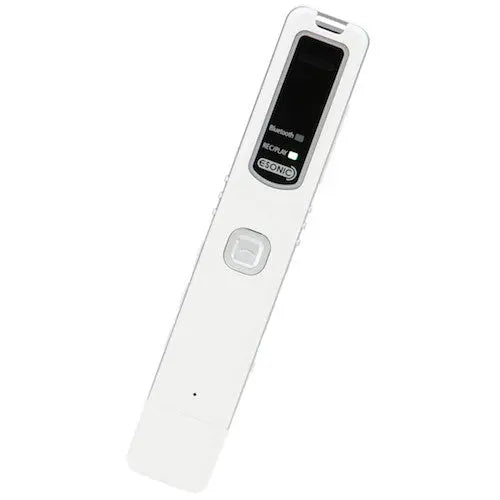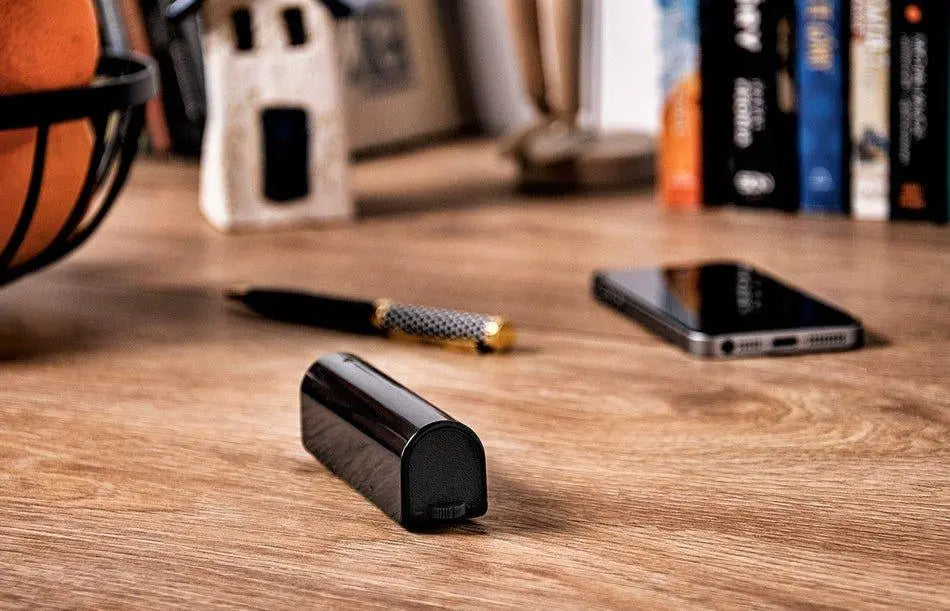
Empowering Journalists with Cutting-Edge Voice Recorders
In the dynamic field of journalism, accuracy and efficiency are paramount. Journalists need tools that seamlessly integrate into their workflow, allowing them to capture interviews, gather insights, and document stories on the go. This is where advanced voice recorders designed for journalists come into play, revolutionizing the way professionals in the field conduct interviews and record crucial information.
Key Features for Journalists:
-
Portability and Discretion: Modern voice recorders for journalists are compact, lightweight, and designed for discreet use. Whether conducting street interviews, attending press conferences, or capturing spontaneous moments, these devices are engineered to be inconspicuous, ensuring that the focus remains on the story, not the equipment.
-
High-Quality Audio: Superior audio quality is non-negotiable for journalists. Advanced microphones, noise-canceling features, and high bitrates enable voice recorders to capture crystal-clear audio, ensuring that every nuance of an interview or event is faithfully recorded.
-
Long Battery Life: Journalists often find themselves in situations where charging opportunities are limited. Long battery life is a critical feature, allowing reporters to rely on their voice recorders throughout the day without worrying about running out of power.
-
Ease of Use: Intuitive controls and user-friendly interfaces are essential for journalists who need to focus on their subjects rather than fiddling with complex settings. Quick access to recording, playback, and file management ensures a seamless experience.
-
File Organization: Efficient file organization is crucial for journalists juggling multiple assignments. Voice recorders equipped with easy-to-use file management systems enable journalists to categorize, label, and retrieve recordings swiftly.
-
Connectivity Options: The ability to transfer recordings seamlessly to computers or mobile devices enhances workflow efficiency. USB connectivity, Bluetooth capabilities, and compatible file formats contribute to a journalist's ability to share and edit content effortlessly.
-
Durability: Journalists work in diverse environments, from bustling city streets to remote locations. Durable construction ensures that voice recorders can withstand the rigors of daily use and diverse weather conditions.
-
Security Features: In the era of digital journalism, protecting sensitive information is paramount. Voice recorders with robust security features, such as encryption and password protection, provide journalists with peace of mind.
-
Integration with Transcription Software: For streamlined workflows, integration with transcription software is a game-changer. Journalists can convert recorded interviews into text efficiently, saving valuable time in the writing and editing process.
-
Storage Capacity: Ample storage capacity is essential for journalists covering multiple stories or events. Voice recorders with expandable memory options or generous built-in storage cater to the diverse recording needs of journalists.
In Conclusion:
Modern voice recorders for journalists are sophisticated tools designed to enhance the efficiency and effectiveness of professionals in the field. With features tailored to the demands of journalism, these devices empower reporters to capture, document, and share stories with precision and ease. Whether conducting interviews, attending events, or working in challenging environments, journalists can rely on advanced voice recorders as indispensable companions in their pursuit of truth and storytelling.
The Evolution of Dictation Solutions for Professional Use
In addition to serving journalists, dictation solutions have become indispensable tools for professionals across various industries, including legal, medical, insurance, government, and corporate sectors. These solutions go beyond standalone voice recorders and encompass a comprehensive suite of tools and technologies designed to streamline dictation processes and enhance productivity.
Dictation Software and Applications:
Professional dictation software and applications play a pivotal role in modern dictation solutions. These tools offer advanced features such as voice-to-text conversion, speech recognition, and seamless integration with other office applications. Journalists, lawyers, doctors, and professionals in various fields benefit from the ability to dictate their notes, reports, and documentation directly into their preferred software, significantly reducing the time spent on manual transcription.
Speech Recognition Technology:
The integration of speech recognition technology has been a game-changer in dictation solutions. This technology allows professionals to dictate spoken words, and the software transcribes them into written text automatically. This not only accelerates the documentation process but also minimizes the risk of errors associated with manual transcription. Accuracy rates in modern speech recognition systems have reached impressive levels, making them reliable tools for professionals who demand precision in their work.
Centralized Management and Workflow Integration:
For businesses and organizations with multiple users, centralized management of dictation solutions is crucial. Advanced dictation systems offer centralized administration interfaces, allowing administrators to manage user accounts, access rights, and device configurations from a central console. Seamless integration with existing workflow systems ensures that dictation becomes an integral part of the overall business process, promoting efficiency and collaboration.
Mobile Dictation Apps:
In an era where professionals are increasingly mobile, dictation solutions have adapted to the demand for on-the-go functionality. Mobile dictation apps enable users to dictate notes, memos, and reports using their smartphones or tablets. These apps often synchronize seamlessly with desktop dictation software, ensuring a seamless transition between devices and locations. This flexibility is particularly valuable for professionals who need to capture ideas or information while away from their primary workspace.
Enhanced Security Features:
Security is a top priority in professional dictation solutions, especially when dealing with sensitive information in legal, medical, or governmental contexts. Encryption, secure file transfer protocols, and user authentication mechanisms are integrated into dictation systems to safeguard confidential data. Professionals can dictate confidently, knowing that their recordings and transcriptions are protected from unauthorized access.
Cloud-Based Dictation:
Cloud technology has further transformed dictation solutions by offering cloud-based storage and processing. With cloud-based dictation, professionals can access their dictation files from any device with an internet connection. This not only facilitates remote work but also ensures data redundancy and backup, reducing the risk of data loss.
Collaborative Dictation:
Collaborative dictation features enable multiple users to contribute to a single document or project. This is particularly valuable in collaborative environments where teams need to work together on reports, presentations, or other documentation. Dictation solutions that support real-time collaboration enhance teamwork and improve overall productivity.
Choosing the Right Dictation Solution:
Selecting the most suitable dictation solution depends on the specific needs and preferences of the professional or organization. Factors to consider include the scale of usage, required features, integration capabilities, and adherence to industry-specific regulations and standards.
In conclusion, dictation solutions have evolved far beyond simple voice recorders. They now encompass a suite of technologies and features designed to meet the diverse needs of professionals in various industries. As technology continues to advance, we can expect further innovations in dictation solutions, offering professionals even more powerful and versatile tools for efficient and accurate documentation.


